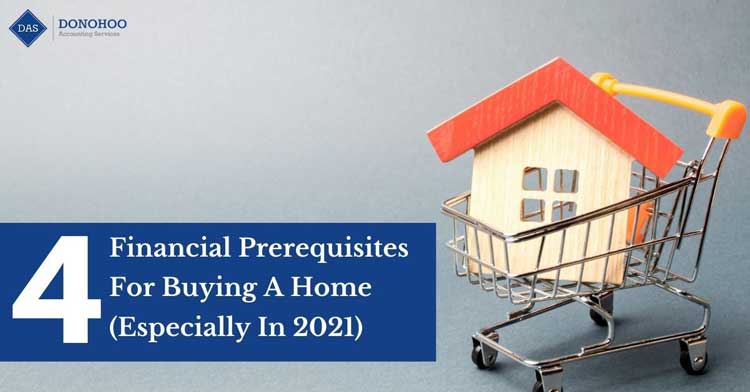
(65)
Buying a home is one of the largest purchases that most individuals will make in their lifetime. And if you’re like many new homebuyers, this may not be your first or last home purchase. Americans are moving homes at quicker rates than ever. With the housing market hot after the pandemic slump, knowing if you have the proper financial prerequisites is even more essential.
If you’re considering buying a home in the next few months, keep reading to learn all about what you need to guarantee you successfully close on the house of your dreams.
Qualifying For A Mortgage
The first, and most important step in home buying is qualifying for a mortgage. The mortgage is how you will pay for your home over time, so qualifying for a sustainable, low interest rate and payment is essential. To determine if you qualify, lenders will look at your monthly income, savings accounts, current level of debt, and your credit score.
Monthly Income
To prove your monthly income, you’ll need to prove at least two years of steady monthly employment, either through paystubs (for employees) or with business documents and tax papers (for self-employed loan applicants). Loan programs usually don’t have a minimum income needed in order to qualify for a mortgage, but there may be a maximum income allowed, so be sure to research this before you apply.
Savings Account
Along with showing that you are reliable with your money, your savings account will prove that you are able to cover any applicable down payment and closing costs for your new home. Not all loan programs require you to make a down payment, though, and many sellers will help to cover the closing costs, so low savings balances do not necessarily disqualify you from a loan.
Debt
High amounts of personal debt can be a make-or-break factor in qualifying for a loan. This is because mortgage lenders estimate that your monthly payments should be no more than 30 percent of your monthly income. If you have outstanding debts to pay, you may already be reaching a 30 percent threshold without an additional payment. Regardless of your circumstance, your lender will calculate a debt-to-income ratio to determine how much additional debt you are able to take on.
Credit Score
Your credit score is one of the most important pieces in qualifying for a loan, and a history of late payments or bankruptcy can automatically disqualify you for a certain time period afterward. That being said, many lenders offer loans for credit scores as low as 580 by looking at other factors. If you, like many Americans, paid down a significant amount of credit card debt during the pandemic shelter-in-place mandates, then now may be the perfect time to buy.
If you have questions about the financial prerequisites of buying a home, Donohoo Accounting Services can help! We have been preparing tax returns and helping clients with their financial issues for more than 20 years. Contact us today for a free consultation with one of our experts! For more tips and our latest updates, check us out on Facebook, Twitter or LinkedIn!
©2016-2023 Donohoo Accounting Services All rights reserved
Design By: Web Strategy Plus